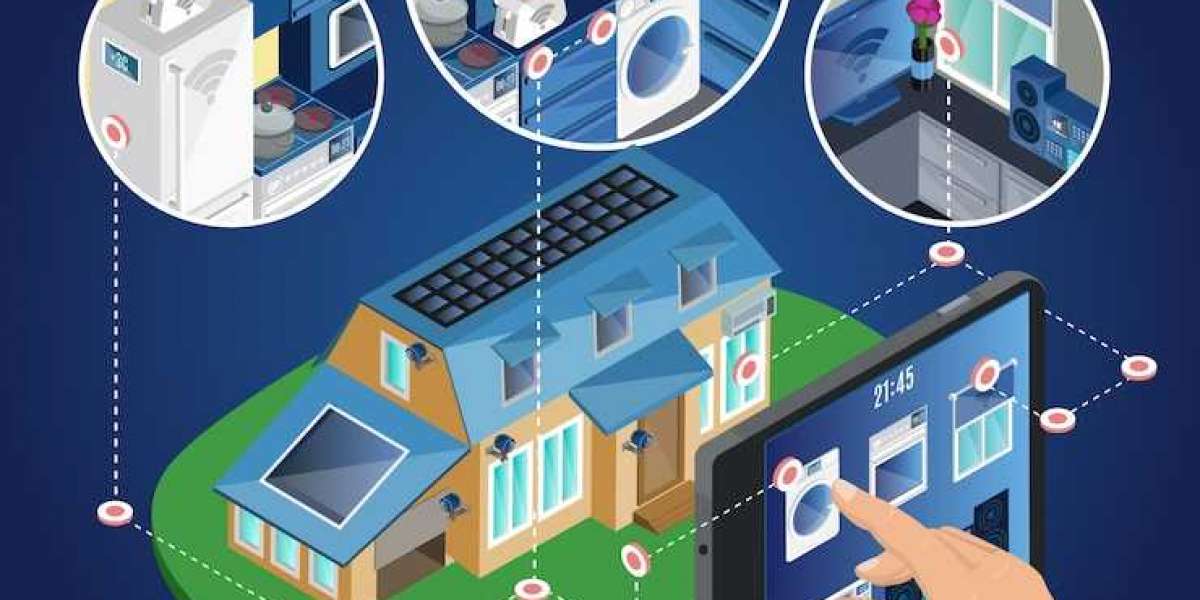Home automation is rapidly evolving, with technology transforming how we manage our living spaces. A Smart home manager is central to this shift, providing a single platform to control and monitor devices across the home. As we look toward the future, smart home managers are set to become even more integral, creating seamless, energy-efficient, and secure living environments. In this guide, we’ll explore the current capabilities, future potential, and benefits of smart home managers.
What is a Smart Home Manager?
Definition and Purpose
A smart home manager is a platform that integrates and controls various smart home devices, such as lights, thermostats, security cameras, and appliances, all from a central hub or application. Its purpose is to unify device control, simplify management, and provide data insights for a more efficient household.
How Smart Home Managers Work
Most smart home managers rely on connectivity standards like Wi-Fi, Bluetooth, or Zigbee to communicate with compatible devices. Users can manage their smart home setups through mobile apps, tablets, or voice-activated systems. The software synchronizes with various devices to streamline automation, enabling users to control multiple gadgets at once and set routines that enhance comfort and security.
Current Trends in Home Automation
Integration and Interoperability
As more people adopt smart home devices, interoperability—the ability of devices from different brands to work together—is becoming critical. Smart home managers are moving toward universal compatibility with devices from various manufacturers, making it easier to choose products based on quality, not brand limitations.
AI-Driven Insights
Artificial intelligence is reshaping smart home managers. By analyzing user behaviors and preferences, AI helps optimize energy use, suggest automated routines, and even predict maintenance needs. These insights allow smart home managers to deliver a more personalized and predictive experience.
Emphasis on Security and Privacy
Increased awareness of cybersecurity has led to enhanced security features in smart home systems. Encryption, user verification, and monitoring alerts are being integrated to safeguard user data and ensure devices are secure from unauthorized access.
Key Features of a Smart Home Manager
Device Synchronization and Control
A fundamental feature of any smart home manager is the ability to synchronize and control devices across the home. This feature enables users to activate or deactivate devices, adjust settings, and create scenes that cater to specific needs, like “Away Mode” for energy conservation when no one is home.
Automation and Scheduling
Automation lets users set routines for devices based on time or activity. For example, users can schedule lights to turn on when they arrive home or have the thermostat adjust itself based on outdoor temperatures. Automation saves time and makes it easy to create a home environment suited to specific preferences.
Energy Management
Energy management is becoming a standard component of smart home managers. Many platforms provide data insights into energy consumption, helping users optimize their electricity use and reduce costs. By identifying which devices consume the most power, users can make informed decisions about when and how to use them, leading to greener, cost-efficient homes.
Security and Monitoring
Smart home managers often integrate security features, such as remote access to security cameras, door sensors, and alarms. Some systems also allow users to receive alerts and even control locks and surveillance systems from a distance, enhancing home security by providing a proactive response to potential security risks.
Voice Command Integration
Integration with voice-activated assistants like Amazon Alexa, Google Assistant, and Apple’s Siri allows for a hands-free experience. Voice command integration has made smart home management more accessible, especially for those who prefer not to rely on a smartphone or tablet.
The Future of Smart Home Managers: Emerging Innovations
AI and Predictive Analytics
The integration of AI is a major advancement in smart home managers. Predictive analytics powered by AI can study household patterns and make suggestions, allowing the smart home manager to operate with minimal user input. For example, an AI-driven manager could adjust lighting and temperature automatically based on time of day, occupancy, and historical preferences.
Enhanced Energy Efficiency Solutions
In the future, smart home managers will become even more energy-efficient, potentially using renewable energy sources, such as solar power, more effectively. Advanced energy management features may allow users to control energy storage and distribution across devices, optimizing usage and even feeding surplus energy back into the grid.
Health and Wellness Integration
Future smart home managers are expected to incorporate health-focused features, such as air quality monitoring, humidity control, and UV detection. Some advanced models may even integrate fitness tracking and personalized wellness routines. With these capabilities, the smart home manager will go beyond comfort, becoming a central part of a healthier lifestyle.
Advanced Security and Privacy Measures
As smart homes grow more interconnected, security and privacy are paramount. Future smart home managers may incorporate multi-factor authentication, biometric access, and even blockchain technology to protect user data. Enhanced security protocols will help ensure that smart home systems are more resilient to cyber threats.
Sustainability and Green Living
Sustainability will be a driving force behind the evolution of smart home managers. From monitoring water usage to enabling energy-efficient modes for high-consumption devices, future systems will emphasize eco-friendly practices. By promoting sustainable living through data insights and device optimization, smart home managers will help users reduce their ecological footprint.
Benefits of a Smart Home Manager
Convenience and Comfort
One of the most compelling benefits of a smart home manager is the level of convenience it offers. Users can control multiple devices from a single app, set automated routines, and adjust home settings without manual intervention. This results in a highly customizable and comfortable living environment.
Cost Savings
Smart home managers provide opportunities for significant cost savings by optimizing energy usage. With insights into consumption patterns and control over high-use devices, users can make smarter decisions, ultimately reducing electricity and heating costs.
Increased Security
The integrated security features of smart home managers add an extra layer of protection. Remote monitoring, access control, and real-time alerts provide peace of mind, allowing homeowners to feel secure even when they’re not at home.
Improved Energy Efficiency
By managing energy consumption intelligently, smart home managers reduce waste. Energy efficiency features not only contribute to financial savings but also support sustainability goals by reducing the household’s carbon footprint.
Personalized Experiences
Smart home managers enable a high degree of personalization. With customizable scenes and schedules, users can create environments tailored to their preferences, making their homes truly their own.
Conclusion
The future of home automation is driven by the evolution of smart home managers, now integrating more efficient, user-friendly features. With advancements in AI, energy management, and security, these platforms are transforming modern living by adding convenience, safety, and personalization. Partnering with an on-demand app development company can help bring this technology to life, providing a seamless home experience tailored to unique lifestyles and priorities.





